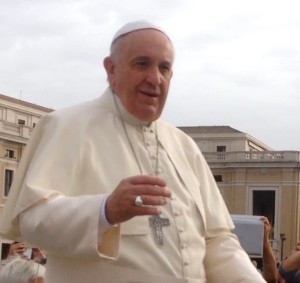
THERE has been an undercurrent of criticism from some people and groups within the Church about the perceived lack of specificity in Pope Francis’ encyclical Amoris Laetitia. This was the letter, written by the Pope about the conclusions to the Synod on the Family.
It seems that the pastoral tone of the Pope’s Letter, which asks for discernment and conscience regarding divorced persons and Holy Communion, is too incomplete for some.
Recently a Vatican newspaper published an article by the theologian Rocco Buttiglione strongly defending the Pope. The long letter by Buttiglione insists that Pope Francis was absolutely in line with his predecessors and Church doctrine on the admittedly thorny issue of whether divorced and civilly remarried Catholics can receive Holy Communion.
He noted that the Church has always taught that there can be cases in which Catholics might not believe themselves to be in a state of mortal sin, or might not be fully responsible for it, which can mitigate their culpability.
“The path that the Pope proposes to divorced and remarried is exactly the same as that the Church proposes to all sinners: Go to confession, and your confessor, after evaluating all the circumstances, will decide whether to absolved you and admit you to the Eucharist or not”, he wrote. His argument, featured on the front page, marked a shift in the Vatican’s defence of Francis’ document, confronting the criticisms head-on rather than just praising the Pope’s text.
The initiative could signal a more concerted campaign by the Vatican to ensure that the Joy of Love is interpreted as Francis intended.
Already, conservative Philadelphia Archbishop Charles Chaput has said that divorced and civilly remarried Catholics can only receive Communion in his Archdiocese if they abstain from sex and live as brother and sister.
Clearly, Dr Buttiglione has not gone far enough and Archbishop Chaput does not seem to understand marriage. First, the priest is not the arbiter of confession or, better, Reconciliation, the primary judge is the personal conscience.
Second, marriage without openness of sex is not Christian marriage at all. As a Church we have a long way to go to catch up with both lived reality and the mind of Pope Francis.
